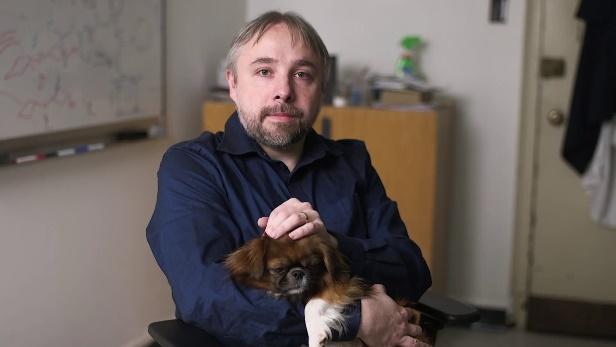Diverse Views in Science | Global statements on diversity: Tomislav Frišcic
Published in Chemistry

By Professor Tomislav Frišcic, McGill University.

In your opinion, which scientific questions will set the trends in the coming decade, and which science problems would you like to tackle?
A scientific question and challenge that I would like to tackle is environmental impact and sustainability of chemical processes and manufacturing, so that we minimize the negative impacts of our work and inventions, while maximizing positive contributions to the society and technology. This requires a holistic view of lifecycle analysis, of being able to predict and evaluate consequences of a chemical process from a wide range of aspects, including sourcing and processing of feedstocks, and the environmental impact of the chemical process itself, as well as of its products upon long-term exposure in the environment. Development of such holistic approaches requires extensive teamwork, transcending the barriers between different fields of science and technology, and broader acceptance of the view that advances in science are most often not the result of contributions made by one single individual, but of a wider team of people that are each distinct in their expertise, location and also time of activity.
How do you experience diverse leadership, diversity in your lab, publication and peer-review, promotion and career progression, in your host country? What are the impediments for creating inclusive, equitable research labs, departments and practices?
In our group, leadership is not limited to the Principal Investigators only, and all members are encouraged to create and direct their own research goals – with the research group "leader" acting as a mentor and a guide. The ability to create such constructive diversity was previously assisted by group members extensively attending and presenting at international meetings, and it has been enhanced in the recent days of the pandemic through recent adoption of teleconferencing technologies such as Teams or Zoom to encompass experts outside of our research group, too.
When it comes to evaluation of excellence, I have occasionally witnessed negative views based on origin, school, country, or oversimplified metrics such as impact factor of a journal, or an h-index of a researcher. This is a major impediment to equitable science – a person’s ability to contribute to science and technology cannot and should not be judged based on anything else except on their activity and enthusiasm.
I believe that creating a competitive, "sink-or swim", environment in science is not key to success in research, and is actually deleterious. The key to academic productivity lies in being motivated and being able to motivate others. In my experience, students and senior researchers alike are most motivated and productive when they feel that they are a part of a worthwhile community, when they work together, engage in open and constructive discussion, and feel free to start new collaborations that will enable them to explore their joint ideas. Legendary tales of "great leaders" who single-handedly push forward the boundaries of research perhaps make for enjoyable reading, but are a major impediment to creating an equitable and rapidly advancing science.
What is your message to the next generation of scientists, and what are your tips for their success?
Do not be afraid to build teams that cross boundaries of traditional disciplines, and engage researchers of different backgrounds. Aim for solving problems in a multi-dimensional way, advancing fundamental understanding, creating applications for your research, but at the same time keeping an eye focused on environmental impacts. Think about the systems as a whole, and how your contribution or invention affects it.
Do not think about research as a competition, think of it is a collaboration and a dialogue with peers from across the world. Other researchers are not competitors, they are colleagues.
Embrace the view that science and research are not about one single researcher, and that we all grow if we work together. Actively oppose the view that there is only one "corresponding", 'leading" researcher, only one person who did the "job" – future of research lies in multi-disciplinary efforts of teams, that are not aligned with classical and outdated metrics that focus on one individual.
Finally, do not be afraid to build your research program and interests around re-investigating and re-evaluating prior work. New technologies bring us the ability to look at established knowledge with new eyes, which can lead to paradigm-changing breakthroughs.





Please sign in or register for FREE
If you are a registered user on Research Communities by Springer Nature, please sign in